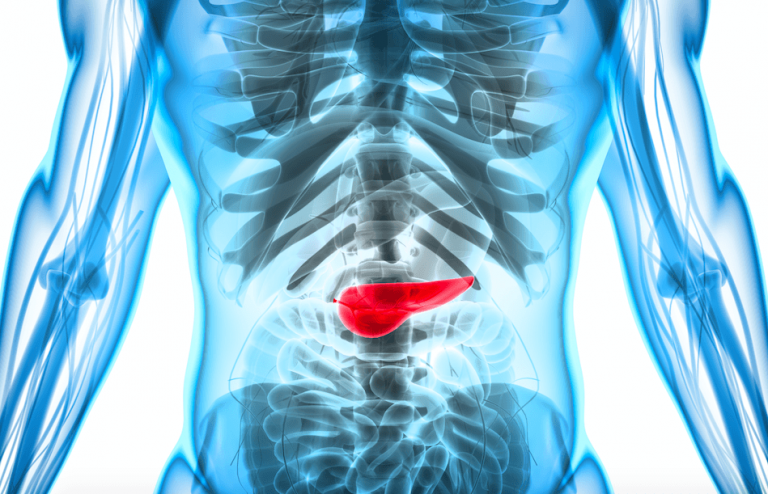Pancreatic cancer that is quite rich in lymph and nerve plexus is very rarely detected in the early stage, as it hardly causes symptoms and signs due to the location of the organ. Pancreas is a spongy organ that lies horizontally behind the stomach. Its head is neighboring the duodenum and the tail is adjacent to the spleen. Secreting various hormones and enzymes, the pancreas regulates the blood glucose level by secreting insulin and glucagon. If two hormones do not function properly, diabetes develops. Moreover, pancreas also helps digestion of fat, protein and carbohydrate with the enzymes it secretes.
Risk factors in pancreatic cancer
Although how the pancreatic cancer develops is yet unknown, it can be expressed that the disease is more common in diabetic patients and others with chronic pancreatitis (long-term inflammation of the pancreas). Smoking is a critical risk factor for this disease, as is the case with other cancers. Its prevalence is higher in people older than 50. It is somewhat more common in women compared to men. Familial predisposition applies to a small group of the cases.
What are the symptoms?
A tumor in pancreas may be completely asymptomatic in the beginning. Therefore, pancreatic cancer is generally diagnosed at advanced stages in most of the patients. Early findings include dark urine, tiredness-fatigue, jaundice (it starts first in sclera and then spreads to entire skin), loss of appetite, weight loss, nausea-vomiting or a pain originating from upper abdomen and radiating to the back. Besides, diarrhea or indigestion can also occur.
How is the cancer diagnosed?
Symptoms may vary depending on the location of tumor in the pancreas. Tumors in head of the pancreas are manifested by jaundice while tumors in corpus and tail are more frequently associated with weight loss and pain. Abdominal ultrasound, tomography or MRI is used for diagnosis. CEA and CA 19-9 readings, which are among the tumor markers, may elevate. Sometimes, it is necessary to obtain tissue specimens from suspicious lesions with needle biopsy to make the final diagnosis. However, the diagnosis is, sometimes, so obvious that surgery can be decided without performing any biopsy.
Treatment methods in pancreatic cancer
Unless the cancer is at an advanced stage, the only treatment option is surgery. Pancreaticoduodenectomy, also called Whipple Surgery, is performed for tumors located in head of the pancreas. In this procedure, the proximal part of the stomach, main bile duct, gallbladder, duodenum and head of the pancreas are removed. It is a difficult surgery that takes a long time. Considering the tumors located in corpus and tail, the diseased part of the pancreas is removed along with the spleen. It is a relatively easier procedure. If the overall health has already impaired severely or if the jaundice is at an advanced stage, a stent is placed inside the main bile duct with ERCP (an endoscopic procedure that does not require anesthesia induction) in order to gain time and alleviate the jaundice. A stent can be placed irreversibly in advanced-stage cases that are inoperable. If it is not possible to remove the tumor surgically, radiotherapy and chemotherapy can be tired. If the cancer has not spread to other organs, chemotherapy is started in the form of monotherapy. Chemotherapy also helps the patients who are undergone surgery. However, the cancer is, unfortunately, is diagnosed at an advanced stage in 70-80% of the patients. Postoperative chemotherapy or radiotherapy is also given, depending on stage of the disease, to the patients who are operated on.
Prevention means in pancreatic cancer
Although there is no direct preventive way or an exact precaution, it is very crucial to have a healthy life style.
- If you smoke, you should first quit smoking.
- Increase share of fruits, vegetables and cereals in your diet.
- Exercise regularly.
Steve Jobs, the creative genuine of the computer world, has died several years ago. Many people heard of him due to his pancreatic cancer. Or vice versa; the pancreatic cancer gained popularity in the agenda due to his health problem. Another famous person who caught pancreatic cancer is Hugo Chavez, the President of Venezuela. One of them is a hero created by capitalism, while the other objects the capitalism and everything created by it. Those two famous persons who claimed to change the world were common only in their request to participate experimental treatments, excluding their bad fate. Jobs have sought a remedy in top-line clinics of the U.S., but he lost the war. On the other hand, Chavez is still using the treatment options all the way in Cuba and Brazil.

